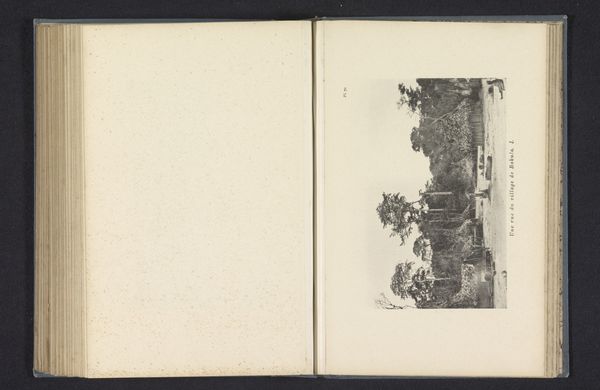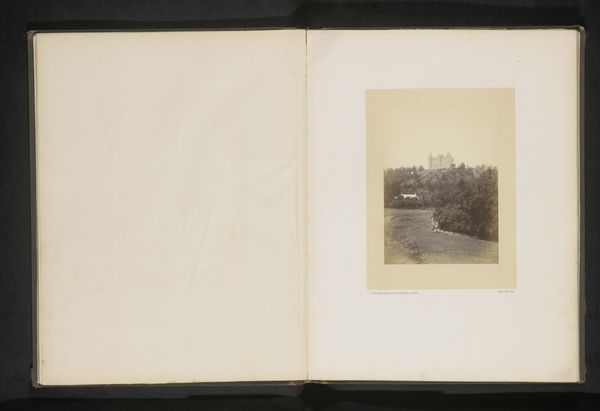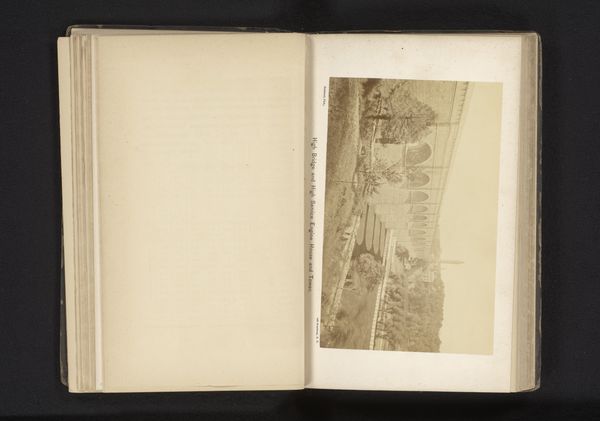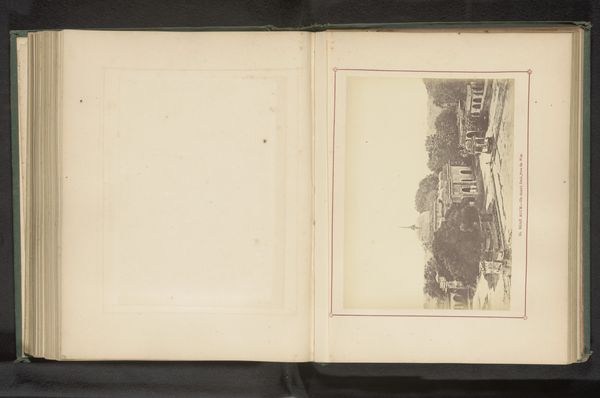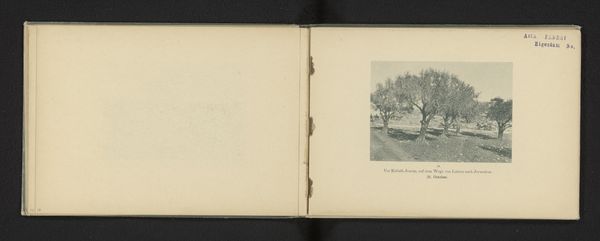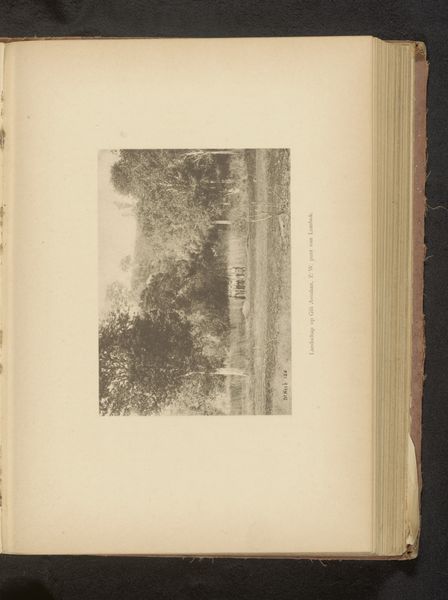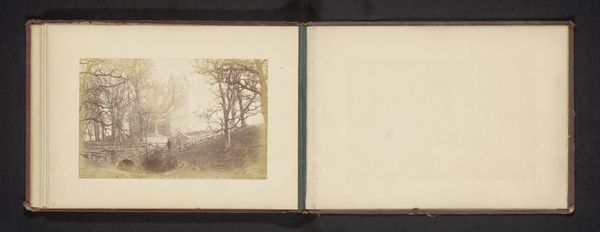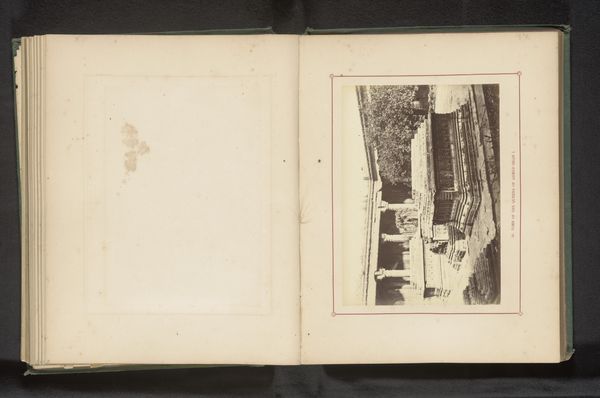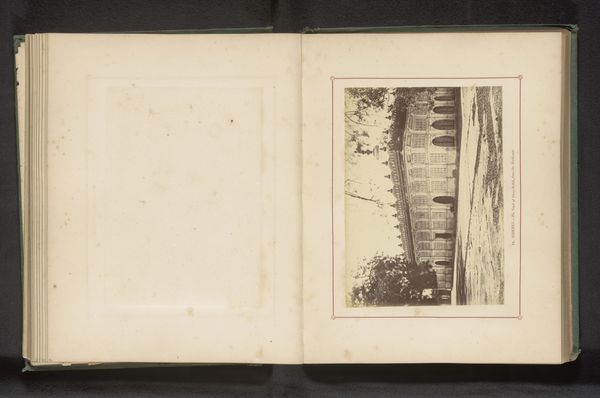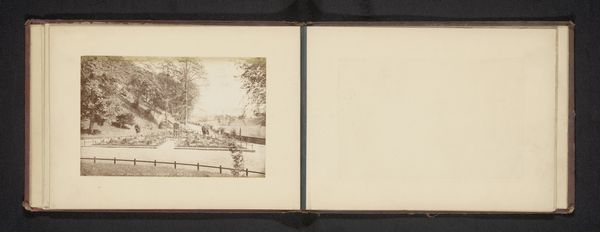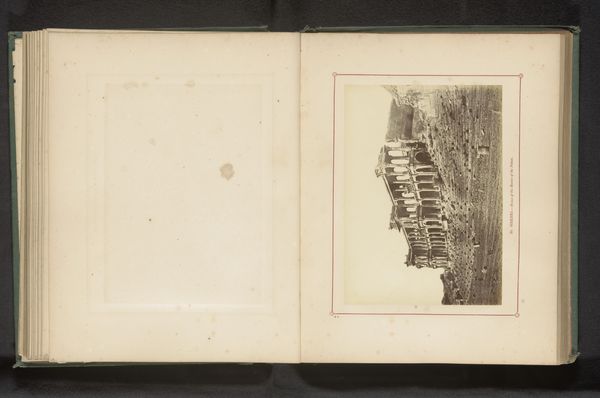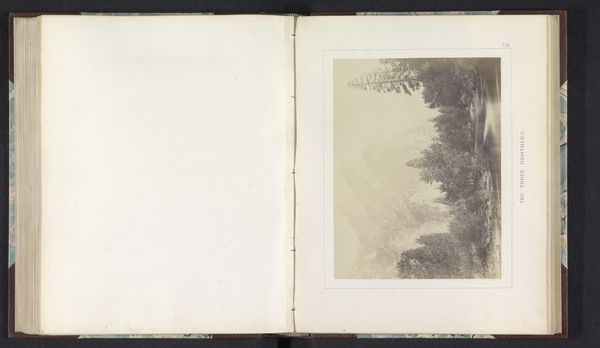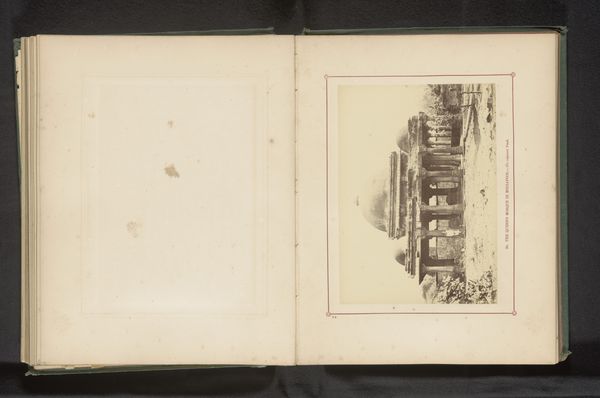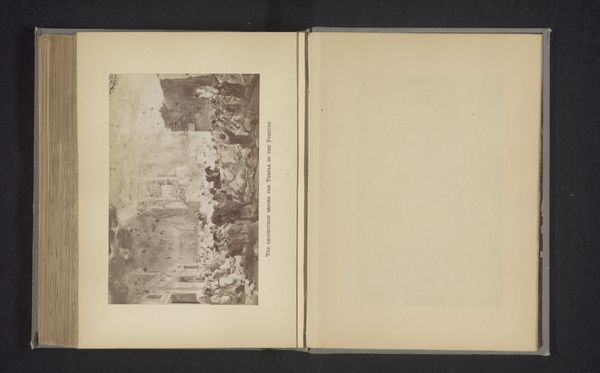
#
aged paper
#
toned paper
#
homemade paper
#
ink paper printed
#
sketch book
#
paper texture
#
personal sketchbook
#
fading type
#
watercolor
#
historical font
Dimensions: height 145 mm, width 192 mm
Copyright: Rijks Museum: Open Domain
Curator: Looking at this image, the first thing that strikes me is its melancholic, almost ghostly quality. The tones are so faded, like a memory clinging to the page. Editor: And indeed it is, in a way. This is "Gezicht op de Mata Bhavanibron in Asarwa," or "View of the Mata Bhavani Well in Asarwa," attributed to Thomas Biggs, and created sometime before 1866. Curator: It looks like it’s part of a sketchbook, given the open pages and what seems like another sheet behind it. Is this ink and watercolor on aged paper? It definitely has that homemade feel. Editor: You have a good eye. The notes do indicate it’s ink and possibly watercolor on homemade paper that has naturally toned and aged over time. The presence of a "personal sketchbook" tag also seems relevant, doesn’t it? I imagine Biggs carrying this around. I wonder what made him stop here. Curator: Well, let's think about that 'stopping'… Asarwa was and is, situated close to Ahmedabad in India. What stories could this Mata Bhavani Well hold for the communities that depended on it? Biggs, as a colonial figure, would likely have had a very different understanding of the site compared to the local population. We really have to ask about whose gaze is privileged here. Editor: It's true, there's that unavoidable lens. Still, there's a certain quiet reverence in the composition, don’t you think? The angle, the detail he chose to capture… Even with the colonial context, perhaps there’s an attempt to acknowledge the importance, if not fully understand it? I feel it as a quiet but solemn statement. Curator: Perhaps, and maybe that's what gives the piece its lingering resonance even now. To me, it’s as much a document of colonial observation as it is an unintentionally revealing portrait of cultural distance. The very act of documentation, of framing this scene, speaks volumes about power dynamics. Editor: Absolutely. The image whispers stories of connection, disconnection, and the weight of history pressing on every line. Thank you. Curator: Indeed. This work encourages us to ask not just what we see, but who is seeing, and from what position. Thank you.
Comments
No comments
Be the first to comment and join the conversation on the ultimate creative platform.
